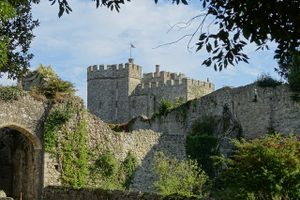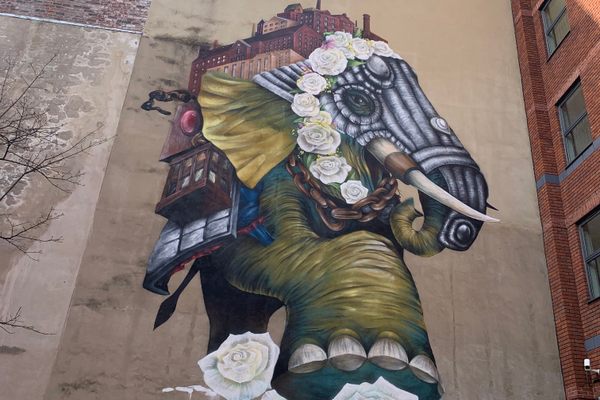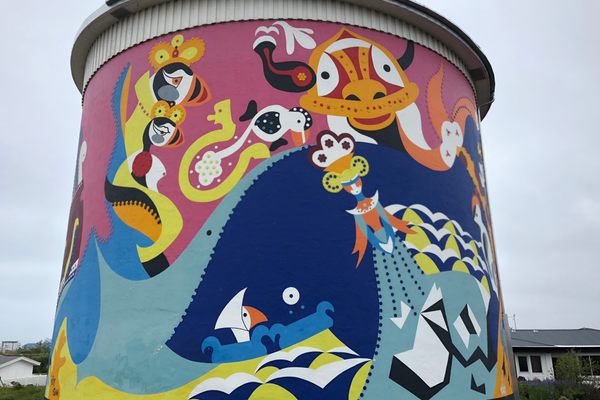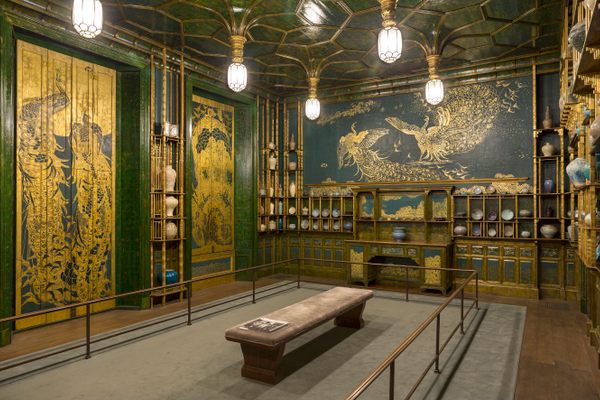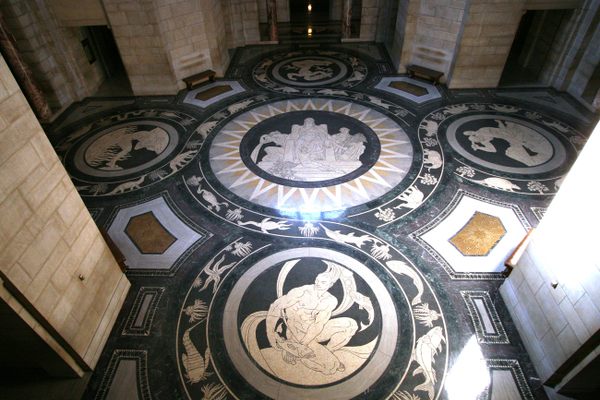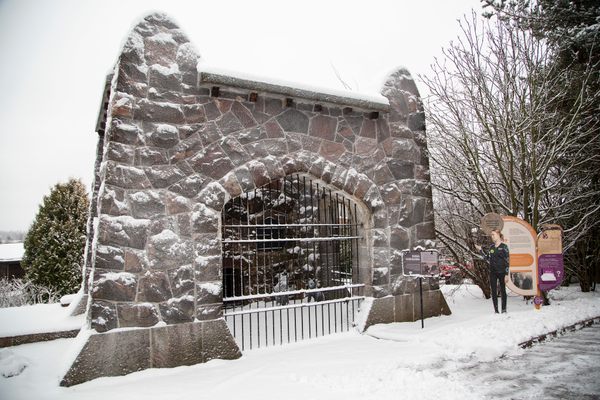About
In the early 1970s, when the eccentric millionaire gambler and zoo owner John Aspinall was looking for a second plot of land to house his growing collection of endangered species, he discovered the mansion and grounds of Port Lympne. He decided to restore the house and its gardens, as he had become enchanted with the property.
Part of the restoration involved creating a pair of murals that would capture the awe Aspinall felt for the natural world and particularly the fauna of India where he had been born and spent much of his childhood years. He commissioned a close friend, the artist Arthur Spencer Roberts, to paint a mural that showcased the extraordinary mammalian, avian, and reptilian biodiversity of several of the world’s regions.
Depicted among the forest, jungle, desert, and alpine landscapes is a Jungle Book-esque bestiary of animals. In forested glades and mountain peaks prowl large predators such as Bengal tigers, hyenas, pythons, snow leopards, bears, leopards, wolves and (Asian) lions, while a variety of smaller carnivores such as otters, jackal, red pandas, civets, various smaller wild cats, monitor lizards, and cobras can be spotted too. Cavorting across canopies are troops of apes and monkeys while creeping through thickets and bamboo glades are peculiar primates such as the slow and slender loris. Birds abound within the mural, which shows songbirds, mynahs, woodpeckers, tragopan grouse , pheasants, peacocks, hornbills, cranes, storks, vultures, eagles, and owls. Browsing among the undergrowth is a multitude of ungulates such as deer, gazelle, antelope, onagers, wild goats, boar, and herbivorous heavyweights such as rhino, buffalo, gaur, Malayan tapir, and elephants.
Many of the animals are depicted together and juxtaposed, despite not occuring in the same natural habitats. These forgivable (and intentional) zoogeographical errors, aside this mural is intended to be an unabashed visual celebration of the natural world. Roberts himself experienced some of these landscapes and witnessed some of the creatures while stationed in Northern India and Burma during World War II.
Roberts, despite possessing an incredible artistic talent, was a rather humble and shy man who consistently declined the attention and competition of the commercial art world and instead preferred to focus on his passion for creating visually stunning works of art that captured the beauty of the natural world.
Related Tags
Know Before You Go
You can find the Spencer Robert's Mural in the Port Lympne Mansion which is located in the center of the zoo and is usually open to the public (unless a private event such as a wedding is in progress). Entrance to the zoo costs £26 and the park is open from 9:30 a.m. to 6:30 p.m.
Community Contributors
Added By
Published
August 26, 2019

















































